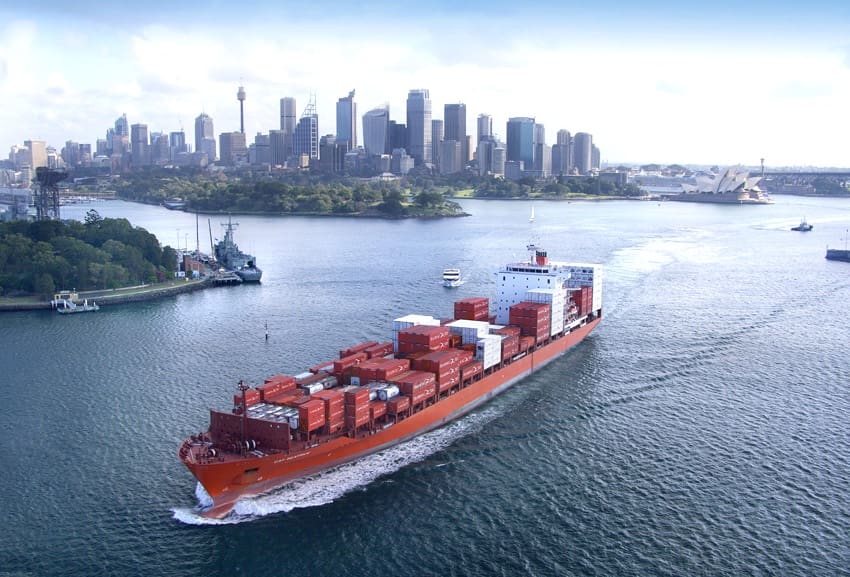
Importers are paying up for biosecurity.
AUSTRALIA’S peak farmer body has reiterated its opposition to the proposed biosecurity protection levy on farmers as the Federal Government discloses almost $100 million, including $11.3 million from importers, has been raised by its sustainable biosecurity funding model.
The National Farmers’ Federation has told the Federal Government it opposes a new biosecurity levy on farmers, saying the proposed levy may erode farmer confidence in the entire levy system.
In the NFF’s submission to the Introduction of the Biosecurity Protection Levy: Consultation Paper, NFF chief executive oficer Tony Mahar said while the peak farming body supports ongoing efforts to ensure Australia’s biosecurity system is well resourced, it does not support this policy.
“This isn’t about farmers not wanting to contribute to the biosecurity system – they already contribute significant amounts.
“This is about an ill-thought-out policy with a raft of potential risks,” he said.
The Albanese Government today said its billion-dollar Sustainable Biosecurity Funding model is already delivering results, with an additional $11.3 million in fees and charges collected from importers in its first three months.
The model was announced in the May Budget, and from 1 July next year, its costs will be shared equitably between taxpayers (44 percent), risk creators (48pc) and the direct beneficiaries (6pc) of the biosecurity system.
As a result of the government’s changes on 1 July, cost recovery from importers has totalled $97.4 million in just over three months of the new regime.
However, the NFF said the key reasons for its opposition included:
- The policy’s inconsistency with established levies and collection principles such as equability, transparency and accountability;
- The likelihood of a range of negative unintended consequences for agricultural and biosecurity systems, in particular our research and development network;
- The lack of transparency about how the funds will deliver dedicated, additional and tangible biosecurity outcomes.
Mr Mahar said the industry was “extremely concerned” this new levy would jeopardise producer confidence in the existing levies system as it did not align with underlying principles, such as proper establishment processes, industry support, equitability and accountability.
“This new levy is going to erode producer confidence in the entire levies system as it’s inconsistent with the principles that underpin other levies producers pay.
“The proposal is not equitable between and within different commodities, and explicitly states that producers will have no say in how the money they contribute will be used,” he said.
“We remain committed to working with Government to improve resourcing the biosecurity system, but we would not be doing our job on behalf of producers if we didn’t call out this policy.
“The government must – at the very least – pause its rushed implementation timeline, so adequate time is given to understand the impacts a policy of this size and complexity will have on Australia’s 85,000 producers,” he said.
The NFF has also used its submission to again raise industry concerns about the container levy policy.
“Australian agriculture has advocated for many years the need for a broad-based levy on inbound containers to help fund the biosecurity system.
“This call has been supported by environmental and invasive species organisations. Review after review has recommended it,” Mr Mahar said.
“The government has advised international trade implications represent a potential barrier to adopting the Container Levy. As a trade-exposed sector, it is not in our interests to run afoul of trading requirements or obligations.
“However, the sector has simply asked these considerations be made public, but disappointingly this has not occurred,” he said.
“This must be resolved immediately.”
Importers are starting to pay their fair share – Watt
Minister for Agriculture, Fisheries and Forestry Murray Watt said he was shocked to find that the biosecurity budget the government inherited was on track to fall by about 25pc, because it was built on temporary, short-term funding.
“At a time when we face more biosecurity threats, I couldn’t believe – and wouldn’t accept – that the Coalition had locked in annual biosecurity funding cuts of almost $100 million every year.
“I was surprised to learn that biosecurity fees and charges had not been properly reviewed since 2015, which meant that importers weren’t paying the full cost of the services they received, with taxpayers picking up the tab,” he said.
“I listened to calls from producers to charge importers more, seeing as imported shipping containers and other goods are one of the largest creators of biosecurity risk.
“For all the Opposition’s talk about container levies – which they scrapped when in office – they did absolutely nothing to make importers pay their way,” he said.
“With our changes, for the first time, importers are starting to pay their fair share.”
Read the NFF’s submission here.

HAVE YOUR SAY